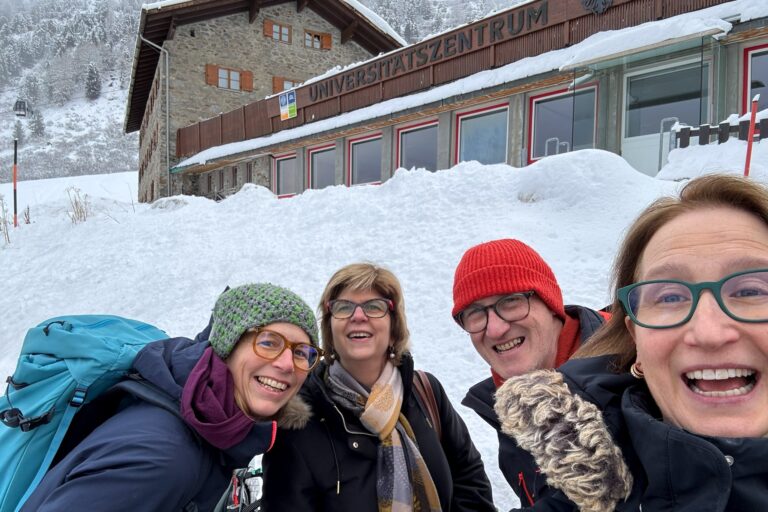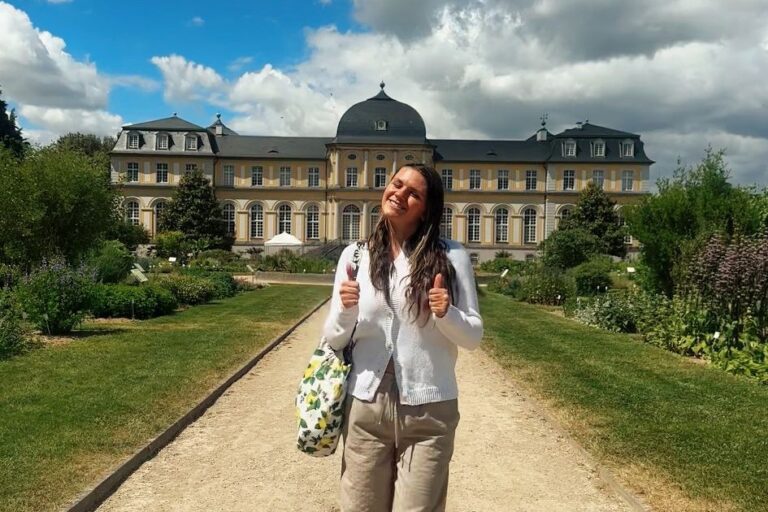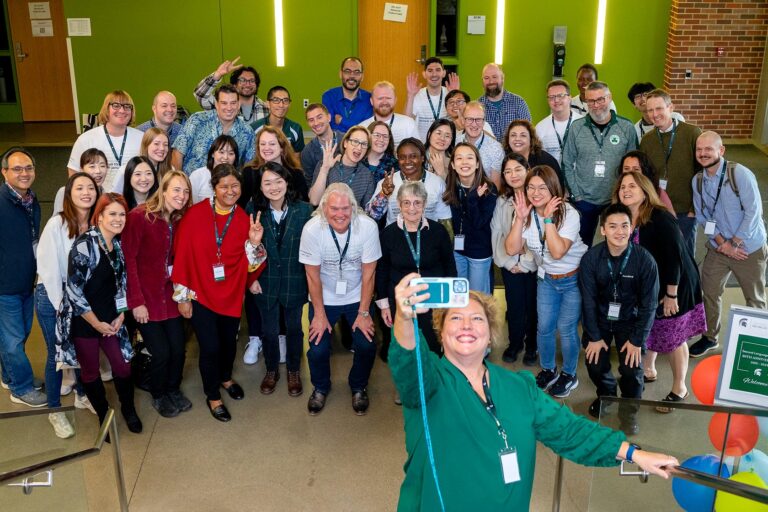
MSU College of Arts & Letters (CAL) graduate students Jennifer Gohlke, German Studies, and Sophia Pavlos, Philosophy, have been named Humanities Without Walls (HWW) 2016 Pre-Doctoral Workshop Fellows, and will join a cohort of 30 graduate students from varied disciplines. The HWW consortium links the humanities centers at 15 research universities, including Michigan State University, throughout the Midwest and beyond.
Gohlke holds a Bachelor’s degree in German Literature and also in Philosophy, and is working on her PhD in German Studies. Her research interests include German-Jewish studies, questions about identity, testimony, the (im-) possibility of representing the Holocaust, as well as the myriad interfaces between these questions and philosophy.
“The Humanities Without Walls workshop offers a valuable opportunity for scholars from all disciplines to gain a foothold in public humanities and establish contacts for possible future collaborations,” says Gohlke. “For PhD students, it can sometimes be difficult to imagine and pursue options outside of traditional academia and Tenure (Track). This opportunity to meet and work with like-minded scholars and role models who have successfully established careers in different sectors will be of great help, and provide new motivation as well as much needed affirmation.”
It has always been my goal to show how philosophy can engage with and address important social issues.
Pavlos holds a Master’s degree in Philosophy, and is currently working on her PhD in Philosophy. Her research interests include the phenomenological experience of lust, the interplay of eroticism and power in individual’s lives, as well questions concerning sexual agency and autonomy within the matrix of class, race and gender.
“I am excited to participate in a program that supports collaboration and interdisciplinarity between academic and non-academic domains,” says Pavlos.
“It has always been my goal to show how philosophy can engage with and address important social issues, and I believe the Humanities Without Walls workshop will offer valuable insight and resources for accomplishing that goal.”
The Pre-Doctoral Workshop Fellows program is supported by the Humanities Without Walls consortium, based at the Illinois Program for Research in the Humanities at the University of Illinois at Urbana-Champaign. The consortium is funded by a grant from the Andrew W. Mellon Foundation.
Fellows Recruitment and Selection

The HWW consortium’s 15 core schools are responsible for recruiting applicants for the Pre-Doctoral Workshop Fellowships who have broad interdisciplinary interests and the capacity to represent a broadened vision of life in the humanities upon returning to their campuses. Each institution selects four candidates from their applicants and submits their dossiers to HWW, which selects two of the four candidates from each institution to serve as Fellows.
“The expectation is that the centers themselves, by engaging with this project, will strengthen their capacity to serve as cross-disciplinary engines for the reorganization of graduate programs in the humanities,” says CAL Associate Dean for Graduate Education Bill Hart-Davidson The Humanities Without Walls Pre-Doctoral Workshop project aims to help prepare doctoral students for careers both within and outside the academy through a series of summer workshops. Graduate students selected for this program engage in intensive discussions with:
- organizers of public humanities projects
- leaders of university presses and learned societies
- experts in the various domains of the digital humanities
- representatives of governmental and non-governmental organizations
- holders of important non-faculty positions in colleges and universities (academic administrators, student services professionals, librarians and archivists, development officers, etc.)
The three-week workshops are facilitated and directed by the Chicago Humanities Festival (CHF), and are designed to represent a broadened vision of life in the humanities and serve as a cross-disciplinary engine for the potential reorganization of graduate programs.
Humanities Without Walls website: www.humanitieswithoutwalls.illinois.edu


